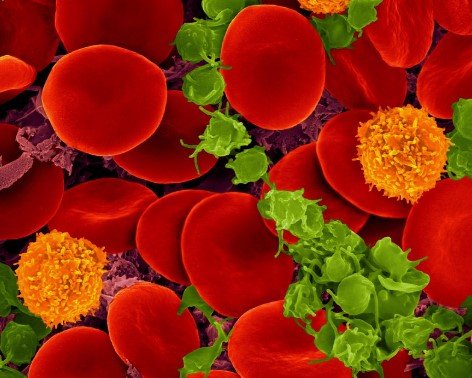Researchers at University College London (UCL) and the Francis Crick Institute have found a strong correlation between immune cell levels in the blood and cancer treatment outcomes. The study, published in Nature Genetics on Tuesday, suggests that patients with higher immune cell counts have a significantly better chance of survival.
A New Approach to Measuring Immune Response
Using a cutting-edge technique known as Immune Lymphocyte Estimation from Nucleotide Sequencing (ImmuneLENS), scientists were able to analyze immune cell proportions from whole genome sequencing (WGS) data. This breakthrough method allows researchers to estimate the ratio of T cells and B cells—key components of the immune system—without requiring additional blood tests.
The study analyzed over 90,000 WGS samples from both cancer patients and healthy individuals. Researchers found that cancer patients had a noticeably lower proportion of T cells circulating in their blood compared to those without cancer.

T Cell Levels Strongly Predict Survival Rates
One of the most significant findings was the link between T cell proportions and survival rates. Patients with higher T cell counts showed a remarkable 47% reduction in mortality over a five-year period following surgery.
- This correlation held true across various types of cancer.
- The effect remained significant even after adjusting for age, cancer stage, and other biological factors.
- The findings suggest that T cell levels could serve as an additional biomarker in cancer diagnostics and treatment planning.
Professor Nicholas McGranahan of the UCL Cancer Institute, a senior author of the study, highlighted the importance of looking beyond the tumor itself. “Most immune system research has focused on analyzing the tumor, but our findings suggest that blood-based immune markers could be just as—if not more—predictive of survival,” he said.
Sex-Based Differences in Immune Response
Another striking observation was the faster decline of immune cell levels in men compared to women. While the precise reason remains unclear, researchers noted that:
- Men with cancer exhibited a more rapid reduction in circulating immune cells.
- This could contribute to sex-based differences in cancer survival rates.
- Further studies are needed to determine whether biological, hormonal, or lifestyle factors play a role.
Early Warning Signs of Cancer?
The study also raised intriguing questions about the potential role of immune cells in early cancer detection. Some individuals who appeared healthy when their samples were collected—but later developed cancer—had below-average levels of B cells in their blood.
This suggests two possibilities:
- These individuals might have had undiagnosed early-stage cancer at the time of sampling.
- Changes in immune cell levels could indicate a pre-cancerous state, potentially serving as an early warning system for the disease.
Implications for Future Cancer Treatment
The findings open the door to new possibilities in cancer diagnosis and treatment planning. By integrating immune cell data into existing genetic tests, doctors may be able to:
- Predict patient survival more accurately.
- Identify high-risk individuals before cancer symptoms emerge.
- Personalize treatment plans based on immune system strength.
While more research is needed to refine these insights, this study underscores the critical role of the immune system in cancer prognosis and treatment decisions. With further advancements, immune cell analysis could become a standard part of cancer diagnostics, offering new hope for patients worldwide.
